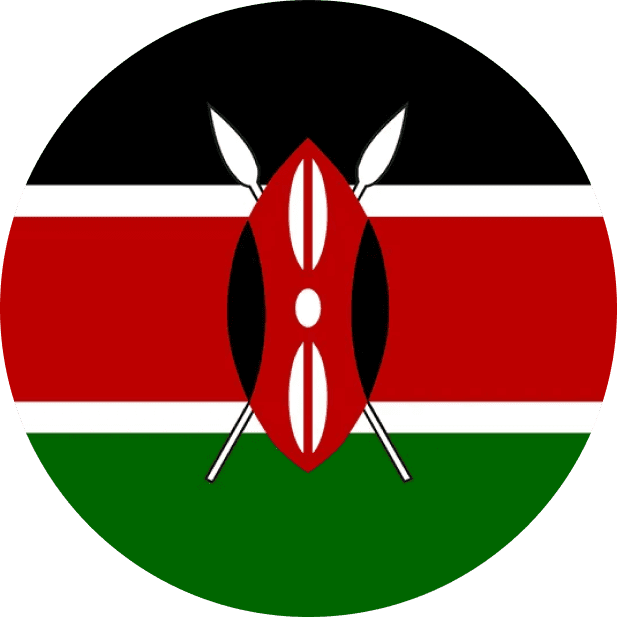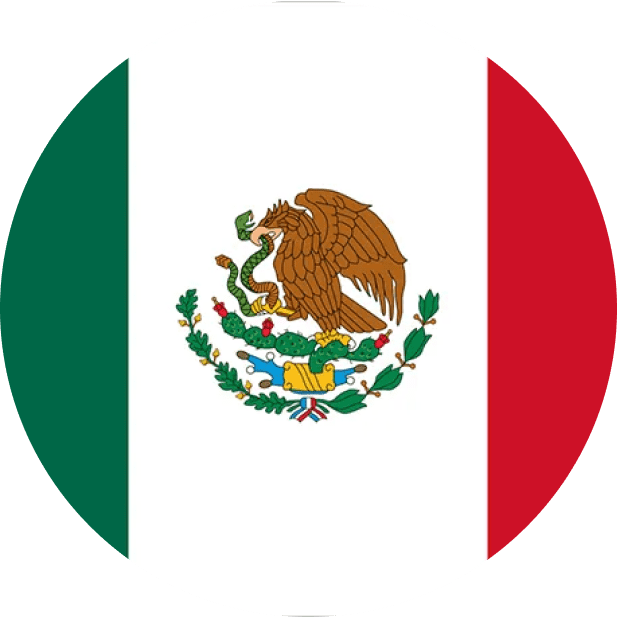About Antonio Nieto Rodriguez
![The Agile project management strategy - Antonio Nieto Rodriguez [Interview]](https://assets-global.website-files.com/62d84b3d3ba446b2ec041a19/62d84b3d3ba4467bc50424b6_https___blogs-images.forbes.com_karleneagard_files_2019_01_Antonio-Horizontal-1200x1056-1.jpeg)
Antonio Nieto Rodriguez is the director head of the project management office, at GSK. He is the global champion of project management. He is the creator of concepts such as the Hierarchy of Purpose featured by Harvard Business Review. Antonio's research and global impact in modern management has been recognized by Thinkers50 with the prestigious award "Ideas into Practice" and is ranked #17 in the global gurus Top 30 list. He is also part of Marshall Goldsmith 100 coaches.
Vanessa Rose

Welcome to another episode of peopleHum interview series. I am your host Vanessa Rose and let's begin with a quick introduction of peopleHum. peopleHum is an end-to-end, one-view, integrated human capital management automation platform, the winner of the 2019 global Codie Award for HCM that is specifically built for crafted employee experiences and the future of work.
We run the peopleHum blog and video channel which receives upwards of 200,000 visitors a year and publish around 2 interviews with well-known names globally, every month.
Vanessa
Welcome Antonio, we’re thrilled to have you.
Antonio
Thank you. It's a pleasure to be with us as well. I love your podcast and I love that you interview some of my friends from Marshall Goldsmith. Thank you.
Vanessa
It's really nice to have you here.
So Antonio, could you tell us a little bit about your journey and what has brought you to where you are today?
Antonio
Well, sure, I'm happy to share a bit of my personal journey. My career has been since the beginning working in projects with the first in a big consulting firm, PWC then banking, doing M&A projects and integration projects and pharma. I became very curious to see why projects failed and what was going wrong and why so many failed.
And actually, at one point in my career, I was fired from my job because I was the project manager and people didn't understand my work. So I said, “How is it that possible that senior leaders, HR professionals didn't value so much somebody working in projects than somebody working in finance or marketing?''
So I decided to study, to research, to convince people that actually, projects are really important for organizations, for individuals, professionally, private. So I’ve spent maybe the last 20 years researching, publishing, teaching in lots of business schools. I was last year in New Delhi, also teaching in India. So that's my hobby, my passion, my work, and that's my journey. I'm lucky to work on a topic I like and I'm passionate about.
Vanessa
Could you also give us an idea about your book “Lead Successful Projects”?
Antonio
So that's my latest book from last year. I published two books last year, one ‘The Project Revolution’, which was talking more about what I call the project economy and how everything around us is becoming project based more than before because of the need to change rapidly. So how organizations are moving from hierarchical structures to product base, and how is it impacting all of us?
The second was, the one you mentioned from penguin, ‘Lead Successful Projects’ and for me, my target in that book was not really the project managers. I think project managers, they often know what to do. They are quite experienced. There's a lot of books on project management. My goal was to make project management understandable for the non-project managers, professionals or anybody working in marketing, in HR, in sales, even personal people, students who had the project that they need to prepare.
“Make project management understandable for the non-project managers, professionals, or anybody working in marketing, in HR, in sales, even personal people, students who had the project that they need to prepare.”
So give them some principles. I talk about them principles that anybody can use for any kind of project. So it's a simplification of project management for anybody to do better their projects. So that's kind of my big contribution I believe in project management is, make it understandable, easy to use and apply for the non-project managers.
Vanessa
Yeah, many don't really understand what project management is today.
So, could you give us an introduction on the importance of project management and what are the important skills that people need to have today?
Antonio
Yeah, that has been one of my biggest challenges in my career is, people don't understand what project management really is or having already been stigmatized on many projects that is engineering or that's AT. That's not something for us here working in strategy, that's quite off detailed. It's more below the hierarchy. It's operational, it’s tactical, it’s not very and I've been fighting all so many years to bring that up and for me, a project is all what you do to create change, to create new value.
It can be in profits if you're in a business, but can be creating a better society or providing better services if you’re in the public sector, so it's always about creating something new. It's about changing what you're currently doing. We call it a project but it can be also transformation, it can be called also agile change. So there's many topics around project management. For me, that's the bigger definition. It's about how to manage and create value, how to manage, to change, how to transform ourselves or organizations.
And there you have some projects which you apply, the more traditional product management. There you have some projects which use more agile ways of working, design thinking. So, for me, what I talk is about change. Change that we need to go through to get better, to survive. Some companies, they need courage just to survive the crisis, to reinvent themselves.
So that's for me a very broad definition of project management, and that's what I tried to convince people. It's also something for you. It’s not just for building bridges or developing IT. It is for any change that you want to bring to your business.
Vanessa
That’s a very broad and a very interesting approach.
Antonio
Yeah.
Vanessa
You also spoke about the agile approach applied. So what are your thoughts on applying an agile approach to executing any objective or a goal in an organization?
Antonio
I love agile. I think agile, it’s a great concept. I don't think we need to see agile as the opposite of project management. I think they’re both complementary.
“I don't think we need to see agile as the opposite of project management. I think they’re both complementary.”
And actually, you would see agile change or agile modes of the working appliance of the project management techniques and the second for the other side. So, it's some projects need some agile way of working when you have a big scope or lots of objectives, we try to focus and prioritize into smaller pieces, which makes sense. You can see results much faster.
So I do think that it is not only agile, the leading companies use both. They have some perspective, they do have some, a bid mid-term planning. They have a vision that they break down. So you start with the, and you break it down into how do we see our future by 2030? How do we see it by 2025? How do we see it next year, and then you use agile to work on those objectives. Some of them would need the proper project plan, some others you can work iterative.
So, I do encourage people working on agile to understand a bit more, the benefits of having a long term vision, breaking that into phases in achievable goals and I also encourage the project managed people to use ideal principles to work on smaller cycles, to work on smaller objectives, to see benefits much faster. So it's maybe not answering exactly your questions. But I do believe that the success comes by combining these two big important techniques around change. You need to also, we were talking to HR people. They know this very good, change management.
So yeah, people are important. So how can we engage the organization to work on agile and project management to see, feel part of that change and supportive? So the resource on the year on change management that we need to understand and be good at. Otherwise our change will not work on these projects or agile will not work. So it's the third leg of what I think will make you a very, very good professional in this area.
Vanessa
Right.
Do you think agile will work now? Especially when the future is so uncertain now?
Antonio
Agile, I think it's a way to explore and test many ideas So it does help when the future is uncertain. I think there is also the views where people think well, it's also about making some big bets, saying, well, if you look, for example, at the top 500 companies in the US today, at least half of them were created during the crisis in the banking sector in 2008.
So the crisis, it is also an opportunity for those people who like Uber or Airbnb, all these companies were created in the financial crisis those years. So I think there is room for yes, you can keep evolving and doing some agile where to be a bit iterative from progressively evolving. But there are some other companies or CEOs who would say this is the way we're backing into platform business or we’re backing into something very radical and hoping that will be the next big thing. So I cannot give you one answer. I'm just telling you the options.
Some company will go more for the big bet. And that means putting your key resources, putting an ambition, a vision, investing into the business to transforming practically versus more an evolution, trying to stretch a bit the past. I call it stretch in the past. So you still stay in the past. You try to stretch it, hopefully lead it to something else. Both are valid. It's up to the organization or the leaders to decide which way they want to go.
Vanessa
And do you think employee-centric organizations do better than business-centric organizations?
Antonio
Absolutely. We are, and we need more and more to take care of people and to listen to them. I like a lot, the concept of purpose-driven organizations. I wrote an article for HBR on purpose, the hierarchy of purpose, which is also use the purpose to attract the people that are connected to your purpose. It's not, people don't get excited to work in a company because their return on investment or they grew their revenues by 20% every year. They get excited, engaged, committed because there is a strong purpose.
You look at Tesla, you look at yeah, big companies have a very strong purpose. Amazon. They do want to do something bigger than just making money. And I think the combination between purpose and people.
“You look at Tesla, you look at yeah, big companies have a very strong purpose. Amazon. They do want to do something bigger than just making money. And I think the combination between purpose and people”.
So if you don't connect purpose with the people-centric and purpose leads to just benefits, you don't get the people behind. So absolutely key to have the connection between people and propose. I add the connection to projects, so we have people, purpose and projects, but absolutely key. I think we will see almost all the companies moving to be people-centric, and many of them will be doing purpose, their main goal for them to attract, to motivate, in the end that's what we like. We all like to contribute a little bit into the company or into doing better for society.
Vanessa
Everybody wants to know that they're contributing to a greater good in the end.
Antonio
Exactly. That's what makes us proud. Of course, we need money to live but once you reach some sufficient level to live, okay, then you're looking for something else, then purpose is that big, big driver.
Vanessa
What are the most important focus areas for planning a project that leads to its success? How do you measure KPIs for a project?
Antonio
Okay, very very good question and planning a project is one of the most difficult things to do, especially now with so much uncertainty. So it's always a question I receive. How can you plan a project where you don't know the future, when you don't know what's going to happen even six months? So what I say is we're on really backwards. So is the purpose of that project clear? What do we want to achieve?
Is it that we want to reach our employees like we want that they are more engaged, that they're happy. So start with the end and then break it down into phases. So okay, our goal is to be ready by 2021. Can we split that into three phases?
So I think planning in project management nowadays works when you have, you can plan for the next three months. So this is what I call the rolling wave or a bit agile as well. Let's plan the three months. Let's set ourselves a milestone or a goal towards that bigger picture. And in three months we will plan the next three months and fine tune the plan. So I think, more than ever, we need to be flexible in the way we plan. We need to be ready that after three months, the project might need to switch to another direction or even stop it, so you cannot commit for a project of 3-4 years.
There are exceptions, of course, infrastructure. If you're building the Burj Khalifa in Dubai, yes, there are exceptions, and you can. The uncertainty maybe is less but normal business, I think the best they can do is work on smaller projects. I always say, if you have a project of three years, break it down into six projects of, five, of six months and then after each tack, you can manage that better.
The second question is about success. This is something I'm very strong and I have a quite different view than most of the traditional project management concepts. Usually we consider success, if you are on time, if you meet the requirements and if you are on budget. I think that it's interesting and it's important. I think success in a project is whether we create value, whether we meet their stakeholders’ expectations, whether we make people happy. So I do think that we need to change the way we look at projects and make value creation the priority.
I've seen many, many projects that have been late for many years. You can, a classic example is the Sydney Opera House, which was planned to take four years, took 14 years. Yes, a very bad project. It costed 10 times more than expected. But would you have stopped the project because it was a bad project, we would have never seen the Sydney Opera House and that project when finished, they make the money in one year that they lost.
So what is the value that we're creating? How can we accelerate? That's for me. The most important success criteria in any project. Not deliverables, not time, not stop, no budget. They are important. The most one is value. If your project is creating value and the sooner the better, that project can be late, that project can cost a bit more.
“The most important success criteria in any project. Not deliverables, not time, not stop, no budget. They are important. The most one is value. If your project is creating value and the sooner the better, that project can be late, that project can cost a bit more”.
But that's for me the big shift that I am promoting.
Vanessa
Yeah, that's very interesting. In the end, it all comes down to value.
Antonio
Exactly. Not money, value. Value means for people different things. Value it's very, very important.
Vanessa
Okay Antonio, do you have any soundbites you'd like to share with our audience?
Antonio
Well, I want to say that everybody listening to this podcast, they are doing projects today. They are going to keep doing projects for the rest of their lives. So I would encourage people to learn a bit. I don't want, I would not say become a huge expert to build, I don't know, a huge building. No, but learn the basics. It’s going to make you better, more employable in the future. When I say, learn the basics of projects, that means also some agile concepts. That for me, the future of work is project base.
We're going to be working in a project for 6 to 9 months. Then, when the project's finished, we move to another one. I always talk that we will see very soon the end of job descriptions. That's the past. That's the hierarchical structures we're moving to project based. We’re also, my last final thought is it's worth to learn a bit about product strategy.
I just recently launched a course on strategy, implementation, getting higher up understanding how businesses work and that would make you really, really employable and successful, happy. So I think that's maybe the last part I wanted to share.
Vanessa
That's amazing. Thank you so much, Antonio, for this, I had a really great time talking to you. Thank you so much for your time and you sharing your insights with us.
Antonio
Thank you. And let's keep in touch and feel free to contact me to get more information.
Vanessa
Yeah, definitely. Thank you so much for being here.































![The Agile project management strategy - Antonio Nieto Rodriguez [Interview]](https://assets-global.website-files.com/62d84b3d3ba446b2ec041a19/62d84b3d3ba446523e0440e4_Antonio%20Nieto%20Rodriguez.png)



.jpg)
![How to stay relevant during a crisis - Rita McGrath [Interview]](https://assets-global.website-files.com/62d84b3d3ba446b2ec041a19/62d84b3d3ba446881d043992_Untitled%20design%20(13).png)
![Transforming adversity into opportunity - Rhett Power [Interview]](https://assets-global.website-files.com/62d84b3d3ba446b2ec041a19/62d84b3d3ba446eee4043850_untitled-design-(4)_optimized.png)












